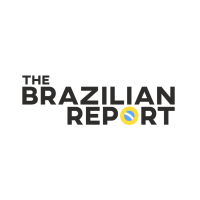
A blog of the Brazil Institute
With a significant number of people isolating at home, the COVID-19 pandemic has brought many industries to their knees. However, illegal land-grabbing, mining, logging, and poaching in the Brazilian Amazon continue at full steam with criminals using the pandemic period to ramp up deforestation in the region.
According to data from the National Institute of Space Research (INPE) and its real-time deforestation detection system, alerts of deforestation in the Amazon increased 64 percent in April, compared to last year. This uptick in forest destruction is also affecting indigenous and preserved areas of the region, with alerts in these territories rising 59 percent in the first four months of 2020.
The increase in Amazon deforestation is a long-term trend that dates back to before President Jair Bolsonaro took office. However, his government has consistently supported what they call the “economic utilization” of the region, with a message that is widely seen as encouraging those who seek to deforest land and set up agricultural, mining, and energy projects.
Brazil's Reputation has Suffered
Keen to avoid the public relations disaster that was last year's Amazon fires crisis, earlier this year the Brazilian government announced it would send 3,800 troops to three locations in the region. Operação Brazil Verde 2 (Operation Green Brazil 2) was launched on May 11 for the purpose of using ”preventive and repressive actions” against environmental infractions related to deforestation and forest fires. Originally scheduled to run until June 10, Vice President Hamilton Mourão announced that the program would be extended.
“We don't want Brazil to be seen in the rest of the world as a villain,” said Vice President Mourão, who leads the government's Amazon Council—a group rapidly put together at the height of the 2019 fire crisis.
Experts, meanwhile, are doubtful over the administration’s sincerity in combating deforestation and question the efficacy of the latest announcements. The deployment of troops cost an estimated R$ 60 million, which, along with the funds allocated to the Brazilian Institute of the Environment and Renewable Natural Resources (IBAMA) environmental protection agency for oversight measures in 2020, add up to little over R$ 175 million—36 percent less than was earmarked for fighting deforestation in 2020.
The international community has widely viewed the government's recent actions as insufficient. Major investors and companies are now warning that they will divest and halt purchases of Brazilian products if deforestation is not addressed.
Land-Grabbing a Growing Challenge
To date, much of the Bolsonaro government’s policy changes have been to reduce protections for the Amazon, empowering land-grabbers and other illegal industries in the region. A provisional decree issued in December of last year by the administration loosened a number of regulations on land ownership, making it possible for land-grabbers to simply self-declare their ownership of a given piece of territory. The move was called a “land-grabbing amnesty” by former Environment Minister Marina Silva.
Now, this legislation is set to be voted on in Congress. The Executive branch has the power to issue provisional decrees which come into force immediately, but must subsequently be approved by the House and Senate in order to be ratified as permanent laws.
Speaking at the launch of Operação Brazil Verde 2 on May 11, Vice President Mourão urged for the approval of the decree and said that without land regulation in the Amazon, “Brazil will continue to live in this eternal game of cat and mouse between elements of the government in charge of oversight, and those people who dedicate themselves to practicing some form of illegality.”
Brazil's indigenous affairs agency, the National Indian Foundation (FUNAI), issued its own rule change that could open up some 100,000 square kilometers of indigenous land to outside interests. Previously, when applying for rural property ownership, non-indigenous people required an official declaration attesting that the territory in question did not include any indigenous land, whether claimed, recognized, or another status within the claims process.
Now, FUNAI has turned this system on its head. The agency established that rural property may be awarded when it is on indigenous land if the land is in the lengthy process to receive official recognition—corresponding to around 100,000 square kilometers across the Amazon Basin.
Like the content? Subscribe to the Brazilian Report using the discount code BI-TBR20 to get 20 percent off any annual plan.

Author

Brazil Institute
The Brazil Institute—the only country-specific policy institution focused on Brazil in Washington—aims to deepen understanding of Brazil’s complex landscape and strengthen relations between Brazilian and US institutions across all sectors. Read more

Explore More in Brazil Builds
Browse Brazil Builds
They're Still Here: Brazil's unfinished reckoning with military impunity




